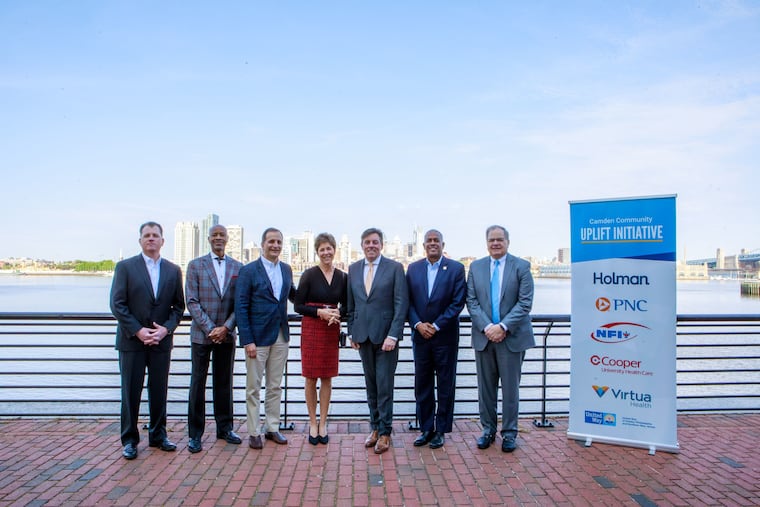Cooper, Virtua, and United Way are collaborating on $5 million effort to fight poverty in Camden
Goals include helping people sign up for government benefits, increasing internet connectivity, and increasing employment opporturnities.

South Jersey’s two biggest health systems, Cooper and Virtua, are collaborating with United Way of Greater Philadelphia and Southern New Jersey on a four-year, $5 million effort to fight poverty in the city of Camden, the groups announced Thursday.
Persistent challenges in Camden include a 34% poverty rate, limited broadband access, and low labor force participation, the organizers of the Camden Community Uplift Initiative said.
United Way and others spent nearly 2½ years planning the effort to get at those problems, said Bill Golderer, United Way’s CEO.
The first step was identifying “the barriers to employment that sound incredibly basic, but are incredibly important to address before you go into the harder challenges,” Golderer said.
The initiative’s two core strategies aim to expand access to benefits such as health insurance and employment opportunities that can support families.
In addition to Cooper and Virtua, which own hospitals in Camden, employers participating in the effort include Holman, a car dealership company; NFI Industries, a trucking company; and PNC Financial Services.
Competitors unite
CEOs of Cooper University Health Care and Virtua Health, otherwise strong business competitors for patients, are co-chairing the Camden initiative.
The cooperation grew out of the health systems’ collaboration during the coronavirus pandemic and regular breakfast meetings between Kevin O’Dowd, co-CEO of Cooper, and Dennis Pullin, Virtua’s CEO.
After the pandemic, talk turned to how else Cooper and Virtua could cooperate to help Camden. In 2021, they worked with state and county officials on a gun buyback program.
Its success got O’Dowd and Pullin thinking: “What‘s the next thing that we can do to try to have a specific impact on the city of Camden, to try to improve lives, improve economic opportunities, improve access to programs, try to address the digital divide?” O’Dowd said in an interview.
Pullin’s membership on the United Way board helped bring the participants together, O’Dowd said.
The community health needs assessments, required of nonprofit hospitals every three years under the Patient Protection and Affordable Care Act, have consistently pointed to the same problems, Pullin noted.
They show that housing, food, nutrition, mental health, transportation, and jobs are key areas of need in Camden. The possibility of addressing some of those problems drew him to the Uplift initiative, Pullin said.
“As business leaders, we have a responsibility to try and create communities of wellness,” Pullin said. The goal is a community that is vibrant not just because people are healthy, “but also thriving because people are employed, people are getting educated, there is affordable housing.”